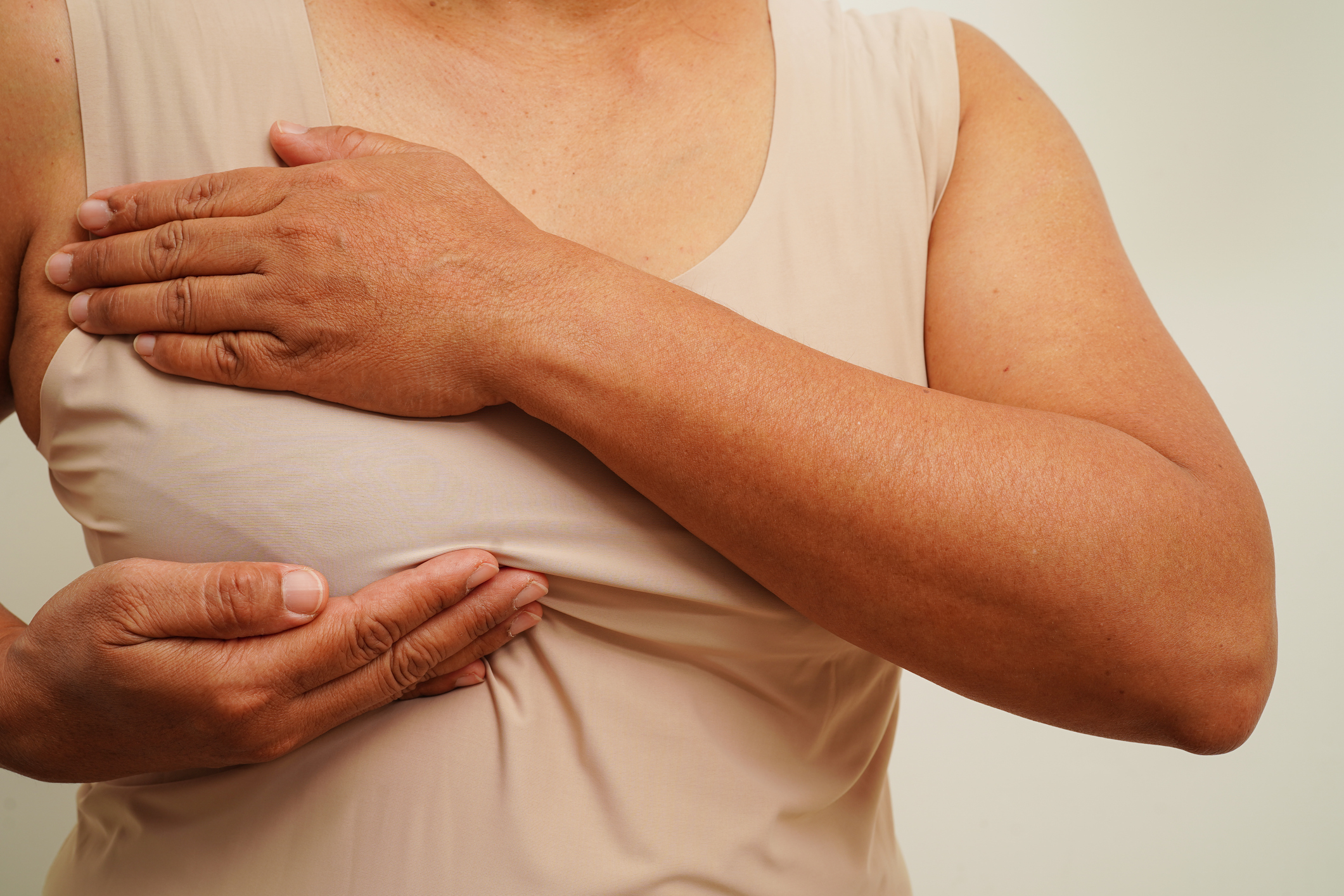

We’ve all been told that being overweight is a recipe for developing breast cancer.
And that’s true…
After all, studies have shown that fat cells actually release hormones that fuel the growth of breast cancer.
And they’ve determined that losing weight helps take the aggression out of breast cancer cells.
However, after doctors took a deep dive into data from the Women’s Health Initiative (WHI) randomized trial, it’s become clear that obesity alone does not drive breast cancer risk or the risk of death from the cancer.
In fact, the researchers say that there are actually four factors that work together to determine whether or not a breast cancer prognosis is poor, as well as mortality risk — and weight is only one of them.
The cancer dangers of metabolic syndrome
In addition to obesity, those factors include:
- High blood pressure
- Abnormal cholesterol
- Elevated blood sugar
And together, they make up a condition known as metabolic syndrome.
It’s a cluster of symptoms that have already been shown to boost your risk of heart-related problems and raise your kidney cancer risk by five times.
And now, it appears that the syndrome might just be behind a dangerous rise in breast cancer statistics.
A score of three or more signals danger
The study that discovered this link appeared in CANCER, a peer-reviewed journal of the American Cancer Society.
The analysis included 63,330 postmenopausal who were part of the WHI. All the women began the study with normal mammograms and zero history of breast cancer before being followed for an average of approximately 23 years.
At the beginning of the research, doctors assigned each woman a metabolic syndrome (MetS) score of 0-4 based on how many of the metabolic issues, such as high blood pressure or blood sugar issues they experienced.
And sure enough, more was definitely not better when it came to metabolic scoring, whether obesity was part of the picture or not.
The research showed that a higher MetS score (3–4), regardless of obesity, was associated with more poor-prognosis, estrogen receptor (ER)-positive, progesterone receptor (PR)-negative breast cancers. And those higher scores also came with a 44 percent higher risk of breast cancer mortality.
On the other hand, obesity, regardless of MetS score, was associated with more good-prognosis, ER-positive, and PR-positive cancers — except if the obesity was considered severe.
If a postmenopausal woman was about 5 feet, 6 inches tall, and weighing greater than 218 pounds, the risk of breast cancer mortality was higher.
In other words, MetS beats weight when it comes to increasing breast cancer and breast cancer mortality risks.
Screening for metabolic syndrome
The good news is that understanding your risk of breast cancer due to MetS is easy.
In fact , as study lead author Rowan T. Chlebowski, MD, PhD points out, “Determination of MetS scores in the clinic requires only three questions regarding cholesterol, diabetes, and hypertension history as well as waist circumference and blood pressure measurements, which are commonly determined during routine visits.”
There are even three simple diagnostics you can do at home to help determine whether you have the syndrome.
And there’s even more to feel good about since negative metabolic factors are completely treatable and even reversible with lifestyle factors…
A few easy tips for fighting MetS include:
- Boosting vitamin D – The sunshine vitamin helps your body make defensins, an internal antibiotic that keeps bad bacteria in your gut in check. And when your gut is healthy, metabolic syndrome has a hard time getting a foothold in your body.
- Sipping away metabolic problems – Green tea is full of an antioxidant called epigallocatechin gallate (EGCG) that has anti-inflammatory effects, protecting the heart and brain, promoting weight loss, and controlling blood pressure.
- Doing a diet DASH – The DASH diet has been shown to dramatically lower diabetes risk, reduce cholesterol and blood pressure and help with weight loss — the four factors that makeup MetS.
- Exercise – Previous research has shown that if fat cells are releasing cancer-causing hormones into your body, your first priority should be to get rid of some of those fat cells, and exercise works when it comes to fighting breast cancer. Here are 5 scientifically backed ways it offers protection. And more research has shown that exercise is the single best habit for a breast cancer-free future.
Remember, to reduce breast cancer risk, it takes more than weight loss. Focus on all four of the MetS factors — including blood pressure, blood sugar, cholesterol and obesity — for better overall health, breast health and cancer prevention.
Sources:
How do obesity and metabolic syndrome affect women’s risks of breast cancer and cancer-related death? — EurekAlert!